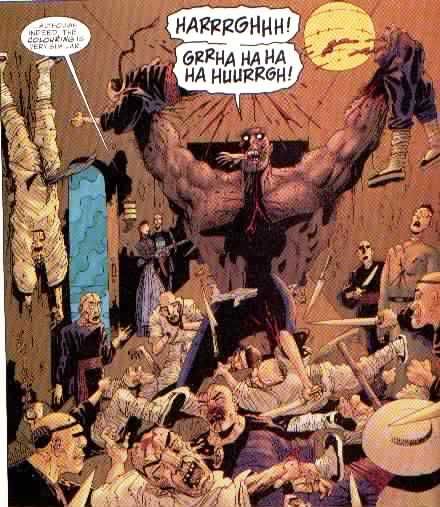The Strange Case of Dr. Jekyll and Mr. Hyde
This was one of the first books that inspired me to write more than a thumbnail sentence review in Facebook. I described Hyde as mysterious, hateful and scary, and he sure as hell is. I gave it a four out of five, and would have scored it higher had I not found the ending to be a rambling let-down. But I have to think that in the 1880's this story would have blown people's minds. Coming from his only other major hit, Treasure Island
Anything intended to produce such an emotional state from people must be tied directly into the human psyche, and horror has always had it's psychological aspect- a deep-seated understanding of the higher and lower functions of the brain disguised as slasher flicks. Jekyll and Hyde hits the mark in a way that has been often imitated- and the term 'Jekyll and Hyde' has become a part of English terminology. All of us have a Mr. Hyde inside of us. Oh, don't deny it. The sweetest, most innocent and cutest people I've ever known still had a hidden and usually secret part of their personality that wanted to bitch-slap and possibly murder perfectly undeserving people who happened to get in our way on a bad day. And it's okay to say it out loud- being Mr. Hyde feels good. Even if running into him in a dark alley would make you crap your pants. Freddie Krueger
One great part of the book is that the identity of Hyde is a secret through most of the story. There is a bit of the Crying Game
Whereas Alan Moore took Allan Quatermain back to his origins, he did quite the opposite with Hyde. He brought him back to life, first of all. Well, that happens a lot in comics. But Moore really pointed out the Hulk
Here is a picture of Richard Mansfield, the actor who played Jekyll and Hyde in the stage adaptation. Hyde was originally described as smaller than Jekyll, and I think Rich nails it:

Now here is Alan Moore's rendition:

Well, you get the drift. As I stated, I think Moore was aiming for some effects beyond loyalty to the original writing, and, ah heck, I just can't stay mad at Alan. He does some incredibly cool (and monstrous) things with Hyde in the league.
It's not like me to recommend half a book, but that's what I'm doing here. Any fan of horror should be ashamed to admit they haven't at least read the first half of this book.
No comments:
Post a Comment